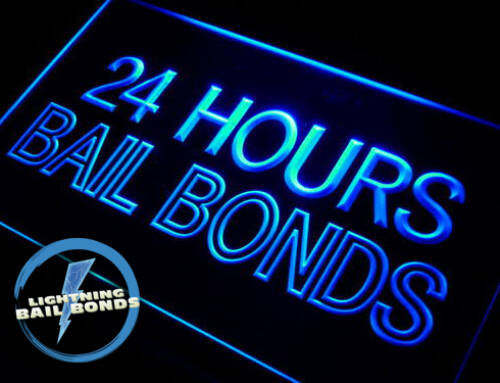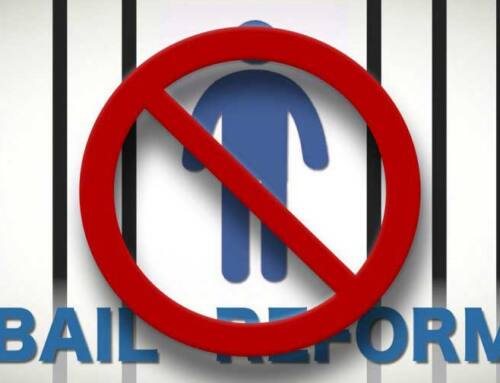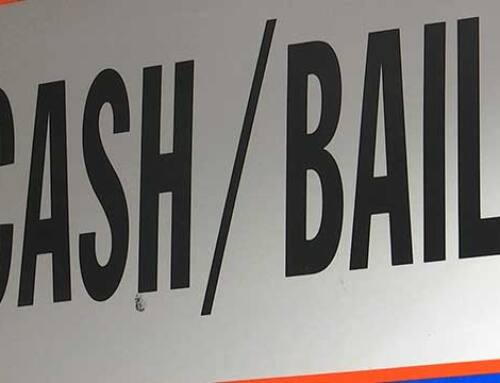LAS VEGAS (KTNV) — Some hard feelings are now mixed in with the grief after a high-profile DUI crash that killed a Clark County School District employee and left a star basketball recruit’s future in doubt.
The case hasn’t gone to trial, but the victim’s family says they’re already being denied justice.
This story is the latest in our series of reports on what many consider a problem with lenient bail hearings and shows once again, it’s an issue where nobody wins.
“I think I’m still in shock because I still can’t get past Dec. 30. It’s like there hasn’t been a new year. There hasn’t been anything,” said Ann Marie Echevarria.
The last time she heard from her husband Eric, he was heading out to pick up something to eat for their 14-year-old son who shares his father’s name.
“And I called him and he’s not answering, so I called my son, and I was like, Eric, where’s daddy? And he said he’s not home yet. And I already knew that he passed away. I knew it before I got to the scene. I knew it was him.”
“We live right at the end of the street. And… It was the most horrible thing,” Ann Marie said.
52-year-old Eric Echevarria had worked for nearly two decades as a Clark County School District custodian who sometimes helped with autistic students.
He was a veteran, an organ donor, beloved father, grandfather and husband.
“I’m thinking, when is he coming home? I look out the window all the time, all the time looking for… Because his spot is right in front of the house. I just look out there and the car’s not there and it’s never coming back,” said Ann Marie.
Their son, an 8th grader, is having the hardest time of all.
“He keeps waking me up in the middle of the night, which is heartbreaking, to ask me, Mom, what happens to me if you die?”
The teenager charged with killing Echevarria is 19-year-old Zaon Collins. The former Bishop Gorman high school student was, at the time, a prized UNLV basketball recruit.
In Collins’ arrest report, police say he was driving approximately 88 miles per hour in a 35-miles-per-hour residential area.
“When he hit him so hard, he airborned his car to the point where the roof of his car hit the wall,” said the victim’s sister-in-law, Evelyn Sulrzycki.
The arrest report says police found a “jar containing a green leafy substance” in Collins’ car, and that Collins appeared to be high.
The district attorney says Collins tested positive for 3.0 nanograms per milliliter of THC–or marijuana–in his blood. Anything above 2.0 is considered impaired under Nevada law.
“He got behind the wheel high. Very high. And he chose to go down this street,” said Ann Marie. “He swerved out of the road and hit my husband.”
Collins has been charged with two felonies: DUI and reckless driving, both resulting in death.
Still, Ann Marie can’t get over one thing. “He was home in less than 24 hours.”
Collins was released from jail the day after he was arrested, allowed to go home with his parents as his case moves through court.
“So, it’s not fair. It’s just not fair!”
Collins received what’s called an own recognizance, or OR release, posting no bail, but being put under several restrictions.
So, what stands out about this case?
“The fact that someone died,” said Lilia Ceballos, a bail agent who routinely works with DUI defendants. “I was expecting a half-million-dollar bail, to be honest. And monitoring! And when we saw he got OR’d we were like… What?! How?!”
Bail has been the subject of much outcry across the country and here in Nevada.
“There’s been incredible racial and economic disparity in the application of bail,” said David Chesnoff, Zaon Collins’ defense attorney.
Some crimes allow for administrative release through the court’s pre-trial services program.
But that’s not the case for felony DUI.
“You don’t expect when someone dies for somebody to be able to just get released,” said Ceballos.
District Attorney Steve Wolfson said his office asked the court to impose a $150,000 bail on Collins.
In a March 2020 interview, Wolfson took a hard line on driving under the influence.
“It’s a choice,” Wolfson emphasized. “And they should suffer the consequences.”
Because felony DUI defendants are not eligible for release through pre-trial services, they must appear in court.
Judge Joe Bonaventure made the decision to let Collins out without posting monetary bail.
“We depend on him as citizens and if he doesn’t take everything into account–especially the family that lost their loved one–to me, at this point, there’s no justice,” Sulrzycki said.
Attorney Chesnoff says the conditions of his client’s release are almost as strict as being behind bars.
He’s on high-level electronic monitoring, has to wear a SCRAM drug-testing patch, and isn’t allowed to drive.
“Basically, the only difference between being in jail and being where he is–and it’s a good one–is that he’s at home and he’s able to work with me,” Chesnoff said.
“If you got clout, you get out. And if you don’t, you stay in jail,” said Ceballos.
He was at Bishop Gorman — a fancy, expensive, private school. He drove a $30,000 car. And now he has a very high-profile, expensive attorney. How do we reconcile that?
“First, his parents love him and want him to go to the best school. And he led the school, from what I understand, to three state championships, so there’s a lot of people that are glad he went there. Secondly, the car was his dad’s. And third, his very expensive lawyer is doing this, at this time, pro bono,” Chesnoff said, meaning he’s not charging the family a fee for his services. “I understand how the family of the fellow who died feels, but I also feel for a 19-year-old boy who has an incredible future that now is in jeopardy.”
“He needs to pay!” exclaimed Ann Marie. “And for him to be out and glorified as a basketball player…!”
Collins’ driving record only fuels the Echevarria family’s anger.
“It’s very, very upsetting that he got to go home, and my husband didn’t get to go home. This was not his first time.”
Not his first time speeding. Or his second. In fact, Collins has four prior traffic cases in the last three years. Two for going at least 20 miles per hour over the speed limit, one for failing to pay attention while driving and one for driving the wrong way on a one-way road.
“It concerns me that a judge could be swayed to release someone with that kind of a history whose actions killed somebody!” said Ceballos.
Chesnoff counters, “I know a lot of teenage boys who’ve had bad driving records, so, I’m not diminishing it, it’s a fact to be decided in whatever occurs here. But I also think that but for the accident, a lot of teenage boys have had those kinds of issues.”
Court records show Collins has paid more than $2,000 in fines for his previous violations. He also had to attend a coroner’s visitation program in 2019.
“And the victim’s family looks at this and they say, clearly, that didn’t matter. He didn’t learn from that. He kept doing it until he killed someone,” Spears said to Chesnoff.
“At a point in time, everything will be said that needs to be said,” Chesnoff responded. “And I know it’s difficult, but everybody should be patient and let the legal process proceed.”
The Echevarria family says, so far, that the legal process is failing them.
“I’m hoping when he goes back on Feb. 17, which I will be in the courtroom, I hope that they lock him up! He needs to be–he can’t be home laying on his couch watching basketball videos when we’re over there not knowing what to do with ourselves! I lost everything! Everything!” Ann Marie exclaimed.
Zaon Collins is looking at mandatory prison time if he’s convicted.
He’s due in court for a preliminary hearing on Feb. 17.
Article Source: “Victim’s family raise bail questions after Zaon Collins case”






